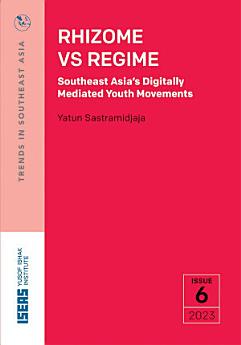Rhizome vs Regime: Southeast Asia’s Digitally Mediated Youth Movements
About this ebook
While experimenting with digitally mediated repertoires of action adopted and adapted from similar struggles elsewhere, these protesters forge transnational links that give rise to new protest assemblages across and beyond the region. This is exemplified by the social media-based #MilkTeaAlliance, in which the distinct protests in Indonesia, Thailand, Myanmar and other countries are conjoined through extended solidarity and affinity ties in a common “generational” struggle against entrenched authoritarianism. The youth resistance in Hong Kong was instrumental in driving this trend.
Like a “rhizome” (Deleuze and Guattari 1987), these movements are characterized by connectivity, heterogeneity, multiplicity and “unbreakable” expansion. This allows for a fluid participation of various activist and non-activist groups (such as K-poppers) and the inclusion of various issues and demands in the protest, which merge into the cause of fighting systemic injustice. It also heightens the movements’ viability and resilience to repression.
However, besides physical repression, protesters in all three countries face the added challenge of new modes of cyber-repression. The combined effect of repressive cyber laws, intrusive cyber surveillance and aggressive cyber troops took its toll on the protest movements’ capacities for online agitation and mobilization, thus contributing to the movements’ silencing and suppression. Yet, the resistance did not die out, as activists dodge cyber-repression and make creative uses of digital media and technologies to cultivate their resistance online, at the grassroots level, or in the cultural sphere.
Meanwhile, as long as authorities remain repressive and tone-deaf to this generation’s criticism and concerns, the gulf between them looks set to widen. The longer-term implication is that this generation will remain alienated and continue to express their struggle in novel and unpredictable ways.
About the author
Yatun Sastramidjaja is Assistant Professor in Anthropology at the University of Amsterdam, and is currently an Associate Fellow in the Regional Social and Cultural Studies Programme at the ISEAS – Yusof Ishak Institute, Singapore.









